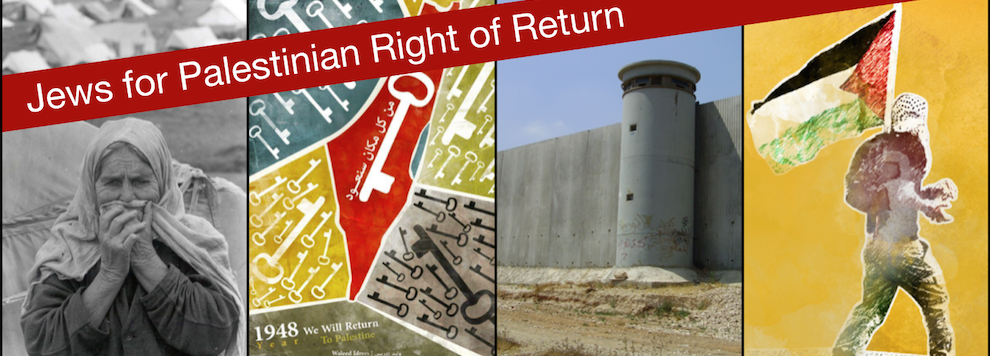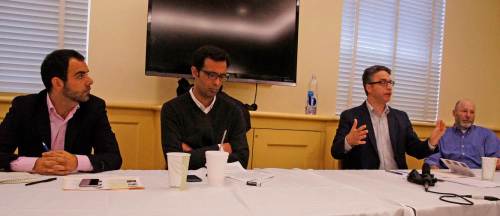CHRGJ Co-Hosts Conference on The Palestinian Right of Return: A Legal and Political Analysis
On Friday, April 1st, the Center for Human Rights and Global Justice, together with NYU Law Students for Justice in Palestine and Palestine Works, co-hosted a panel discussion on The Palestinian Right of Return. The event brought together lawyers, activists and human rights practitioners who engaged in a political and legal analysis of the contested ‘right of return’, by addressing its grounding in international law, as well as its meaning and connotations in public and political discourse.
During the first panel, Jamil Dakwar, Emilio Dabed and Michael Letwin addressed the political controversy surrounding the grassroots invocation of the Palestinian right of return. Dakwar discussed the struggle of internally displaced Palestinian communities, both from an activist and a legal viewpoint. A range of political and diplomatic strategies of the Israeli state, such as the declaration of a state of emergency, he argued, as well as the passing of laws like the Absentee Property Law (1950) and Prevention of Infiltration Law (1954) acted to systematically deny Palestinian refugees – including those who have gained Israeli citizenship – from returning to their homes and reclaiming their confiscated property. He underlined the importance of the concept of a ‘right of return’ -both morally and legally -as an inspiration in the struggle of Palestinian refugees including those who are considered internally displaced within the borders of 1948 Palestine. Dabed complemented this point by adding that, in his view, the Palestinian Authority’s investment in a two-state paradigm undermines a strategy of refugee return and effectively dissociates Palestinians from their national struggle. Letwin, speaking on behalf of Jews for Palestinian Right of Return, linked this discussion to the struggle that grassroots groups in the United States are engaging in, and outlined various strategies employed by various social justice movements in the U.S. that work on this issue.
The second panel zoomed in on the legal aspects of the ‘right of return’ and examined its place within an international law framework. Omar Shehabi, director and founder of Palestine Works, and Susan Akram of Boston University School of Law, discussed whether and how International Humanitarian Law, Nationality and State Succession Law, and Human Rights Law can be considered legal basis for this contested right. Akram also highlighted the rights of refugees under International Law including the legality of the right of return, the right to compensation, as well as the right to third party resettlement. She explained how the existence of the latter two rights do not negate the existence of a ‘right of return’, which she understood to be primary and durable as both an individual right, and obligation on the state. She concluded her argument by underlining the importance of a deep understanding of how law can be used as a mobilizing tool that effectively empowers activists and rights-holders.

